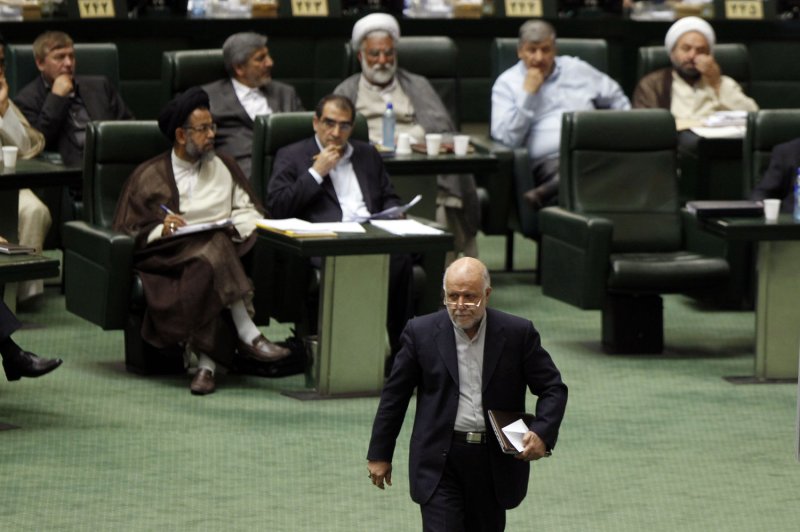Iranian Oil Minister Bijan Zanganeh called on Saudi Arabia to stick to the terms of an OPEC agreement brokered in 2016 rather than offer more oil. File Photo by Maryam Rahmanian/UPI |
License Photo
July 16 (UPI) -- Saudi Arabia is reminded of its obligations to production quotas outlined by an OPEC-led agreement brokered in late 2016, Iran's oil minister said Monday.
The latest survey from commodity pricing group S&P Global Platts put Saudi oil production in June at an 18-month high. Production in June reached 10.39 million barrels per day, above the quota of 10.06 million barrels per day outlined in the OPEC-led agreement from 2016.
Citing people with knowledge of the matter, Bloomberg News on Monday reported the Saudi Arabian Oil Co., known more commonly as Saudi Aramco, told its Asian customers it could get more cargoes of crude oil. The report said the volume committed was beyond the company's contractual obligations.
With the balance between supply and demand shrinking, there's little room in the market for disruptions. Libya has been plagued by insecurity, labor action has complicated output from the North Sea and Iran could be sidelined from the market once U.S. sanctions go into force in November.
In a letter to his counterpart, Khalid al-Falih, Iranian Oil Minister Bijan Zangeneh said Riyadh was moving against the OPEC tide with pledges of more production.
"In my opinion, as far as production and adherence to quotas are concerned, only decisions adopted unanimously at OPEC conference by their excellencies the OPEC ministers are valid and shall constitute the basis for action by OPEC," the letter read.
OPEC ministers and contributing non-member states agreed in June to pull compliance with the production deal closer to 100 percent. Parties were above 100 percent this year, in part because of chronic production woes in Venezuela.
Moving to 100 percent, however, means some members would need to put more oil on the market to compensate for losses from producers like Libya and Venezuela.
Speaking at the last OPEC conference in June, Zanganeh said he objected to higher oil prices because there were few long-term benefits for consumers and producers alike. Recent spikes in the price of oil, he said, were largely a reflection of increased global political tensions and U.S. action on Iran.
To U.S. President Donald Trump, the Iranian oil minister said it was lopsided policy to complain about higher oil prices while at the same time imposing unilateral sanctions on countries like Iran and Venezuela.















